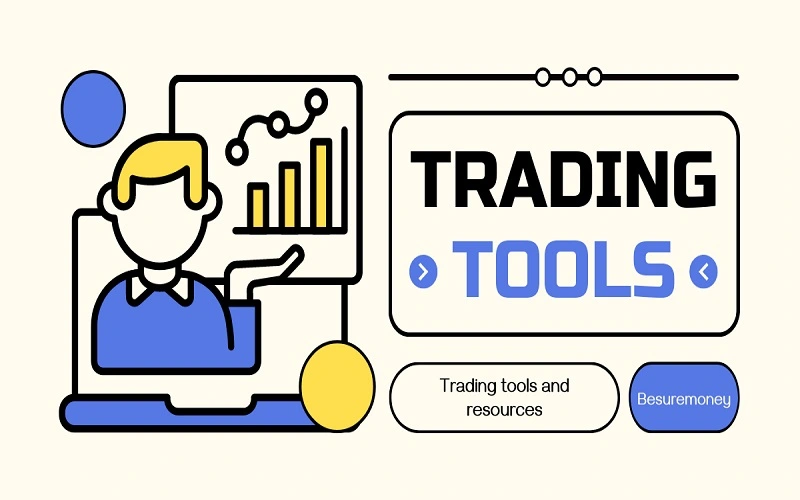In this blog post, You can be a stock market genius by some step-by-step guides and find out how you can grow to be a stock market genius. Whether you are a new investor or want to improve your stock market skills, our step-by-step guide can help you succeed.
Understanding what is the Stock Market?

A stock market is a market in which investors buy and sell shares (stock) of traded companies. These stocks represent ownership in these companies and can provide you with the opportunity to earn profits. The major stock market indexes such as Dow Jones Industrial Average, Nasdaq Inc, Nasdaq Composite, S&P 500(Standard & Poor’s 500), Nasdaq 100, etc. This represents sections of the stock market. It is difficult to track a single company that’s why indexes a representative of the entire market.
What are the basic things you have to learn?
- Open a Demat account and connect to your bank account
- Before trading be clear about the right investment goals.
- Create a diversified portfolio for long-term investment and avoid short-term investment.
- Be ready for Downturn
- Decide how much risk you can take and also be patience
- Before investing real money try the stock market simulator
- Learning Chart Patterns, Candlestick,s and fundamental analysis
What is the Investment Strategy you have to choose?

Here are Some investment strategies to choose from:
- Set Your Financial Goals
- Buy and Hold investment
- Apply 80/20 rule
- Active Investing
- Small Cap Investing
- Determine your investment goals and risk tolerance.
How to build and manage your portfolio to become a stock market genius?
Research is the best thing to get success. Successful share marketer geniuses are dedicated researchers. Dive deep into the companies you’re interested in, their financial success, management team, and industry trends. Use various assets of statistics to make knowledgeable decisions.
Diversify Your Portfolio
Diversification is spreading your investment over multiple assets to maximize risk. Spread your money around because if one stock or sector the loss to your overall account will also be managed. Geographic (investing in other countries), sectoral (investing in other industries), and asset class (investing in stocks, bonds, real estate, crypto, etc.)
Risk management techniques:
Every investment carries some level of risk. Learn to manage hazards by putting stop-loss orders, setting up risk-reward ratios, and retaining a balanced portfolio.
Stop-Loss Orders: Sell a stock automatically at a chosen value to prevent losses.
Hedging: you can buy financial instruments, like options and futures, which would neutralize your potential losses in the portfolio.
Insurance: Think about using investment insurance products like annuities or even buying portfolio insurance to protect yourself from large losses.
Keep Emotions in Check
Emotions can cloud your judgment. Try not to act quickly out of greed or fear. Always be disciplined and follow your investing strategy.
Continual Learning and Adaptation
The share market is ever-evolving. Stay updated with its trends, economic news, and industry developments. Make changes to your strategy as necessary to remain competitive.
What are the tools and Resources that you can be a Stock Market genius?

Some tools and resources for a stock market that can make you a stock market genius:
StocksToday: Stocks Today covers the daily stock market news, updates, trends, and important information related the market decisions
Benzinga Pro: Benzinga Pro is a real-time stock market news and research platform for traders, which features live market updates, advanced tools, and in-depth analysis.
Yahoo Finance: Yahoo Finance is a popular platform for financial news, data, stock market insights, trends, and investment tools.
Sentiment Analysis: Sentiment analysis includes analyzing text to determine the emotional tone and attitude of the writer
MarketScreener: Marketscreener is a financial information platform that provides you with data on the stock market, analysis, and tools for investors and makes the market a professional to track stocks and market trends.
StockCharts: Stockcharts is an online platform that provides you with interactive financial charts, technical analysis tools, and entire market data for investors and traders.
What are the Common pitfalls that should avoid being a stock market genius?
There are several common pitfalls that traders (investors) should be aware of. Some of the most common pitfalls or mistakes include:
- Over-relying on past performance
- Timing the market
- Buying Stocks Without a Plan
- Trading Difficult and Unclear Patterns
- Neglecting Stop-loss Orders
- Not Cutting Losses Quickly
Conclusion
To become a stock market genius take care of yourself first you should know the basic principles of the market first: Make an investment plan having an investing and trading account. Selecting the best form of wealth creation researching for the best stock building a well-diversified portfolio educating yourself staying informed practicing patience and discipline. These steps will help you to navigate the stock market and pave the path to your financial success. Investment journey today and keep learning and changing concerning how to achieve your investment targets.
FAQs:
Q1. Is investing suitable for beginners?
Ans: Yes, beginners can start investing in stocks with proper education and a well-defined strategy.
Q2. How do I pick the right shares to put money into?
Ans: Research and analysis are essential. Look for companies with strong fundamentals and growth potential.
Q3. How should one go about diversifying their stock holdings?
Ans: Diversification includes investing numerous asset lessons, including shares, bonds, and real estate, to unfold the chance.
Q4. How can I manage risk in stock market investing?
Ans: Setting stop-loss orders, maintaining a diversified portfolio, and using risk-reward ratios are key risk management techniques.
Q5. Is it possible to obtain extensive returns inside the inventory marketplace?
Ans: There are no guarantees, with the right approach and dedication, investors can achieve significant returns over time.
Q6. How do you recognize if a stock is undervalued or overvalued?
Ans: A high P/E ratio may indicate that stocks are overvalued. Therefore, it can be useful to compare the P/E ratios of our competitor companies to see if the stock you want to trade is overvalued from its intrinsic value. The P/E ratio is calculated by dividing the market price per share by earnings per share (EPS).
